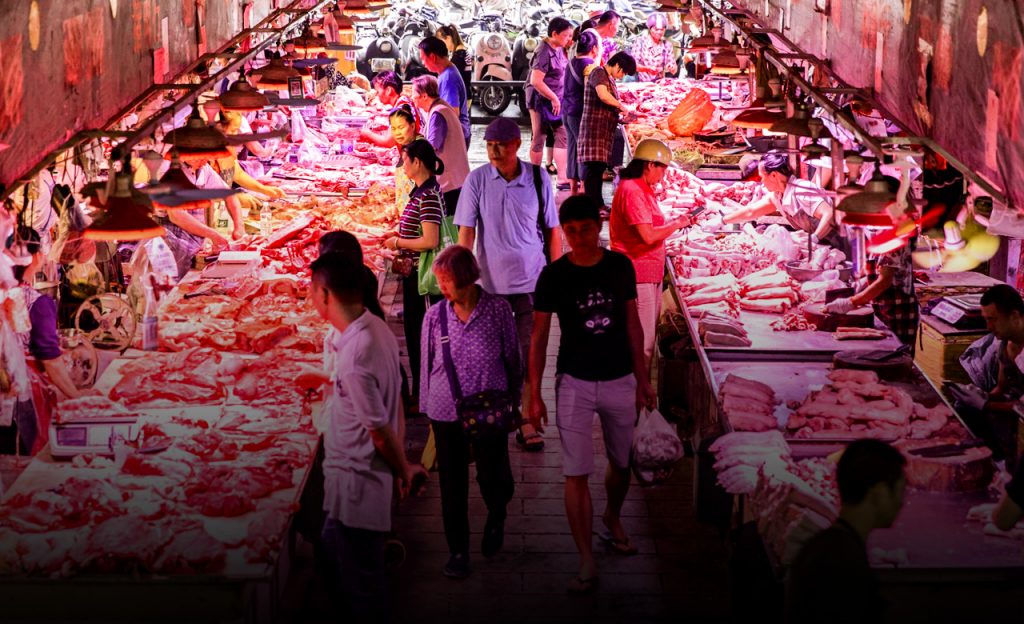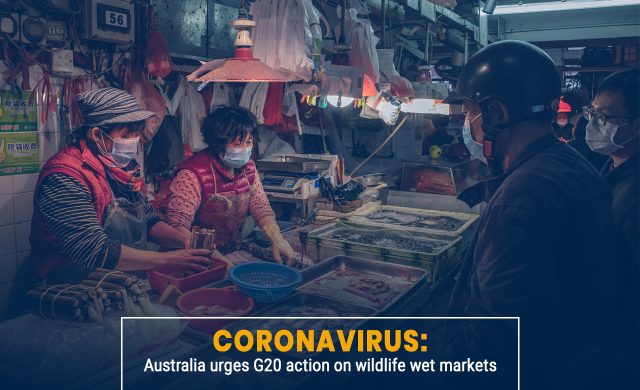The Australian government has ratcheted up pressure on China by calling upon G20 member countries to take notice of Chinese Wildlife wet markets whom Australia thinks are a biosecurity and human health risk.
The country is not yet advocating for a ban but believes they may need to do so in future. Wet markets are marketplaces that mostly offer seafood including fish, lobster and others but some are also involved in selling wildlife. Many think that COVID-19 has emerged from a Wet market in Wuhan that was offering live wildlife creatures to its citizens. The Huanan market in Wuhan is widely believed to be involved in the trade of a variety of wild animals including wolf cubs, snakes, foxes, frogs, turtles and others.
Australians pushed for an investigation into wildlife trade during a meeting of G20 agriculture ministers. Talking to the ABC on Thursday, agriculture minister David Littleproud said there is no intent to scrutinize all wet markets.
“A wet market, like the Sydney fish market, is perfectly safe,” he said.
“But when you add wildlife, live wildlife, exotic wildlife – that opens up human risk and biosecurity risk to the extent we have seen.
“And in fact, China themselves reported this to the World Organization for Animal Health, that that was the cause of COVID-19.”
The agriculture minister added that he wanted to “get the science” first but in the same breath gave his opinion: “Even our chief veterinary officer is telling us that he believes they (wildlife wet markets) may need to be phased out.”
“Our people should have confidence that the food they eat is safe, we owe it to our domestic population and our international markets,” he said.
As the world battles with the mysterious virus, the exact origin of novel coronavirus are yet to be traced, though the strong evidence and assumptions so far suggest that an animal could be the maiden host of the disease.

According to World Organization for Animal Health, the virus could be a close relative of a host of viruses detected in horseshoe bats. So the virus could have been carried initially by a bat before its spread to human via an intermediate host – one such assumption suggest: bat>pangolin>humans.
The SARS coronavirus is also thought to have emerged in bats which carried them to civets before eventually getting passed to humans. Mers, another coronavirus was also spread from bats to camels which in turn transferred them to humans.
China in January announced a temporary ban in the trade of wildlife as it enforced the measure during the SARS outspread. A month later, the government went on to thoroughly ban the illegal trade of wild animals while also criminalizing the consumption of all kind of exotic and other wildlife to safeguard people’s lives and health.
However, since then, a number of reports have emerged revealing that the wildlife consumption has still not stopped and markets are open for its sale across mainland China and elsewhere. Recently the WHO chief urged all governments across the world to rigorously enforce bans on the sale and trade of wildlife.
Tedros Adhanom Ghebreyesus said: “When these markets are allowed to reopen, it should only be on the condition that they confirm to stringent food safety and hygiene standards.”















